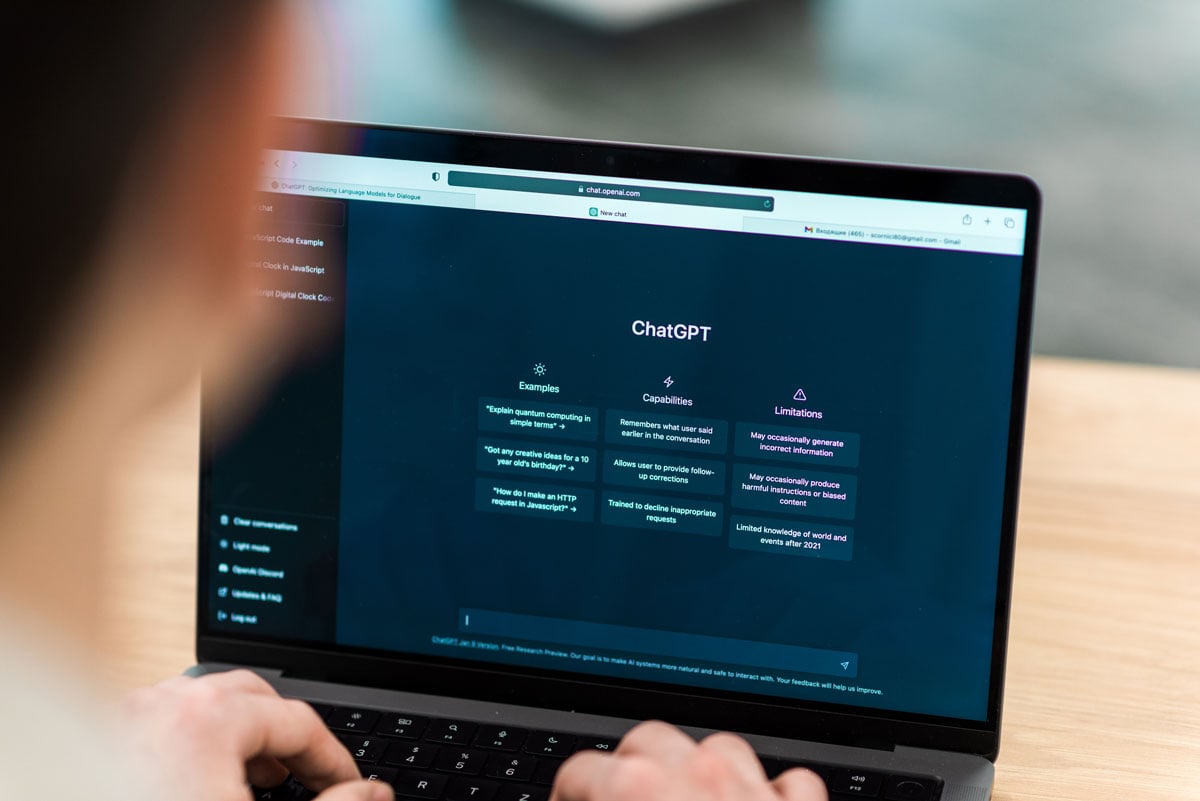Deploying AI - the intelligent approach for modern hoteliers
When it comes to running a hotel, great staff are a hugely important resource. They work hard, have all sorts of skills such as speaking other languages, and always being ready to welcome guests with a smile. Great staff can also flex to changing conditions and are able to handle developing situations with intelligence. But however great they are, staff can’t work 24/7, sometimes forget important details, or fail to respond quickly or appropriately when situations arise. They are, after all, human and not machines. This is why Artificial Intelligence is making rapid inroads into the hospitality market - not necessarily to replace staff, but to boost what staff can do, and also create entirely new possibilities for hotels. AI is being increasingly utilised in the hospitality industry to enhance guest experiences, streamline operations, and improve overall efficiency, and even if you’re not aware of it, chances are it’s already impacting your business.
Artificial Intelligence ‘learns’ on the job
Artificial Intelligence frequently makes the headlines, but what is it actually? Well, it’s a set of technologies which use computers to do tasks that would typically require human intelligence. To achieve this the machines have to be programmed to ‘think’ in a similar way to our own brains. Note that they are still machines, and terms like ‘think’, ‘learn’ and ‘understand’ should really always come with quotation marks around them. The ‘thinking’ that AI does is an extension of highly complex neural networks which mimic human thought, but which are firmly rooted in logic.
Nevertheless AI aims to make computers do human-like processes, such as learning from experience, recognising patterns, solving problems, and making decisions. You’ll have heard the buzzwords data and algorithms. Data is the information that AI uses to learn and make decisions, while algorithms are the step-by-step instructions that guide AI in using that data. A key aspect of AI is its ability to ‘learn’ and adapt over time. Systems improve their performance by analysing ever more data and refining the algorithms that process it. Crucially, this can be done within the system itself without the need of a programmer adjusting how the data is used or processed. And of course the advantages of using AI include tireless efficiency and always-on 24/7 service.
One of the most noted examples of Artificial Intelligence is the now widespread use of the ChatGPT Large Language Model, which is in essence a gigantic database of words and phrases collected from all over the internet, to predict and generate conversational dialogue with remarkably human-like qualities, and virtually instant responsiveness. AI is now touching almost every aspect of our lives, and is particularly important in the fields of engineering, medicine and medical research, and across most business sectors. Of course right now, we’re interested in AI in hospitality.
Artificial Intelligence in hospitality
AI is fast, efficient and always on, so it’s a natural fit for the hospitality industry, where many tasks are relatively repetitive, but need to be perfectly executed. Chatbots are one of the first areas where AI has been deployed in hotels, but there are many other areas of customer service which benefit from the use of Artificial Intelligence. ‘Understanding’ trends in customer demand can also be achieved quickly and easily, compared to even a very experienced human manager. This helps with forward hotel planning, and Dynamic Pricing also becomes much better enabled, as AI can search and analyse myriad data points across markets and countries, and especially of direct competitor hotels in the immediate area.
In fact any time data collection and analysis would be useful to a modern hotelier points to the application of AI technologies. Even a predictive maintenance programme can work more smoothly and effectively using AI, rather than older computer methods, or through plans devised by human managers.
All of this would be pointless however if the cost/benefit ratio didn’t stack up, but with Artificial Intelligence in the hospitality industry, it does. Take chatbots for example: You can have an ‘old fashioned’ (pre-2023!) model popping up on your website, or for no greater cost, a newly AI-enabled bot which is quicker, covers more functions, and engages guests more effectively. In many cases it’s not even noticeable that you’re using AI… apart from the improved flexibility and responsiveness.
The benefits of AI for hotels
Using AI frees up staff, because they are less tied up in repetitive jobs, and can therefore devote more quality time in face-to-face contact with guests. Once correctly deployed, an AI system rarely makes mistakes, unlike human staff who can get tired, or are doing so much multitasking that details slip through the net. AI ‘remembers’ everything.
Anything which enhances the guest experience in a hotel is worthwhile, and AI can do this in many forms. Happier guests lead to repeat bookings and recommendations, and help improve a hotel’s reputation. This in turn increases revenue, coupled with overall reduced costs through efficiencies and greater staff effectiveness.

8 AI applications for hotels
At any touchpoint in the guest journey where human decisions need to be taken, AI can be deployed to take convincing human-like actions. Although AI for the hospitality sector is in its infancy, use cases are rapidly developing.
1. Chatbots are becoming a common AI application in hotels
Until recently chatbots could typically handle only a limited number of Frequently Asked Questions when queried by a guest. Even then, they were a valuable tool, being available 24/7 and often helping a guest in their decision to make a booking. Now AI-enabled chatbots can handle a wider range of customer enquiries, from reservations, providing information about facilities, as well as responding to FAQs. The interchange between guest and bot is natural, and AI allows quicker response times and improved customer satisfaction.
AI-enabled chatbots are also able to converse in the guest’s chosen language, making it easier to engage with the hotel, and avoiding any embarrassing mistakes in translation, or other misunderstandings. Naturally this makes the guest more comfortable during their initial enquiry, and results in greater booking success. While many hotels have staff who are somewhat multi-lingual (but who are not always available), AI chatbots are always on call, and can ‘speak’ and ‘understand’ most major world languages.
2. Using voice recognition and speech synthesis in hotels
At present most hotels using chatbots offer a ‘pop-up’ text box to communicate with their guests. It works, but requires the guest to type in questions and read the answers, which can be a little tedious, especially during the initial inquiry. The technology for voice use is available as an add-on for newer AI chatbots, and being able to have truly spontaneous-seeming conversations is already here. Vast numbers of people are used to talking to Siri, Alexa, and other Voice Assistants, and it’s no longer a strange or unusual idea to query a hotel by asking questions aloud. AI-enabled voice services are coming - fast.
Voice systems are also increasingly being integrated into Smart Hotel rooms, where guests can accomplish various tasks by voice command, such as turning lights on or off, opening curtains, or changing climate control settings.
3. AI Dynamic Pricing optimises ARR and maximises revenue
When a guest starts to engage with a hotel through its website, one of the crucial deciding factors will usually be price. Using AI algorithms, room rates can be adjusted in real-time based on demand, occupancy rates, and historical data. This helps hotels maximise revenue by optimising pricing strategies and increasing ARR (Average Room Rates). With AI, the data points referred to are massive, and the algorithms reporting back on pricing give instantaneous results. Even the most on-the-ball hotelier could not work with anything like the same speed and accuracy. In fact what might take a human an hour to achieve would likely be redundant by the time they’d made their calculations. So AI brings unprecedented accuracy and speed to the essential science of dynamic pricing.
4. Data analysis really is ‘the new oil’
Every step on the guest journey is data rich when using AI-based systems, which means that hoteliers can learn a great deal about all aspects of the guest journey. How long did a potential guest browse the website, and what language did they choose? Which facilities did they investigate, and at what point did they query the price? What kind of room were they interested in, and did a chatbot offer of an upgrade attract them? What are the typical times that guests want to arrive and check in? Do they have any particular needs or wants? How will they be paying, where will they be coming from? All of these questions, and many more can be harvested and be available for analysis and use, in moments. Even with just that short list of questions and answers it’s easy to imagine how long a human staff member would take to record all of those points. AI will do it as a matter of course. Then you can use all of that rich data to help the guest experience be more fulfilled, and make the hotel operate more efficiently, smoothly, and profitably. It’s often said that ‘Data is the new oil.’ You know what? - It’s true, when that data is applied using Artificial Intelligence.
5. Planning for everything with AI Revenue Management
Dynamic pricing takes into account ‘macro’ movements in the market by comparing what competitors are offering, and at what price. Revenue Management works to vary how a service meets the constantly changing needs of hotel guests, coupled with factors such as energy costs, staffing, food and beverage costs. In other words the total picture being faced by a manager as a snapshot at any particular moment. Again, that’s not something a single person can hope to do in a timely manner, but it is easily achieved by AI systems designed to help hoteliers understand and plan their revenue flow.
6. Being on top of the hotel supply chain
The more a hotelier knows, the stronger they are in being able to make unique offers to guests, at the right time and the right price. Knowing how the Supply Chain is functioning is therefore crucial to success, tracking knock-on effects of delays, disruptions or price changes. It’s almost more than any full-time employee can manage, but data management, especially if using AI systems for hotels will increasingly make it easier to be on top of every aspect of the supply chain. That makes for a more responsive and proactive hotel offering, across every department.
7. AI in hotels will do ‘the simple stuff’ too
Two departments that may not initially seem like candidates for upcoming AI applications are Housekeeping and Maintenance. Instead of merely reacting to problems, Property Management Systems such as SabeeApp’s Housekeeping app make it possible to plan maintenance schedules around the best times for both hotel and guests. This goes for daily cleaning rotas too. For instance, rather than disturb guests who are still in their rooms, a smoothly functioning Property Management System ‘knows’ who has checked out and can automatically reroute cleaning staff to attend to those rooms first. Supervisors can also check if the room is ready and can leave comments if something is not right. That promotes a better guest experience, greater efficiency among staff, and incoming guests have rooms available when they need them, rather than having to wait for them to be ready.
8. Seamless hotel automation = the perfect guest experience
One of the big trends of the last few years across all sectors of commerce and entertainment is the rapid uptake and use of contactless solutions for payment and other services. This is a movement which is also rapidly being taken up in the hospitality sector, where check in and check out can be contactless, along with keyless access, and even with the use of Augmented Reality in hotels. AR cues guests to special offers, and features while they are in-stay. The whole of the guest journey can be automated to be seamless, and contactless, promoting a smoother, more satisfying stay. Why queue to check in when the guest has already entered all of their pre-stay details into the system? Why hang around waiting to be handed a key when the room can be accessed with a smartphone code? These are examples of leveraging the inherently rich data which now comes automatically with modern Property Management Systems, and which can be analysed and acted on to promote greater efficiencies and guest satisfaction. Features such as contactless payment and self check in were the first moves towards modern, automated hotel management, and AI solutions are now making a step change to the next level.

Creating personalised guest experiences
It may seem like a paradox that the adoption of highly sophisticated technology which is increasingly powered by Artificial Intelligence can result in better, more personalised guest experiences, but it’s true. If the data exists at every touchpoint to enhance a hotel’s service (and it does), then it should be analysed and utilised to the max. No human staff can do that nearly as quickly or as efficiently as the very human-like AI bots and apps which are available. And no, this isn’t science fiction - it’s available right now.
At SabeeApp we understand the needs of hoteliers because we have been working internationally for over a decade, supplying our cloud-based Property Management System and hospitality industry solutions. Not only do we have a deep understanding of the industry, but we also know everything about the technology which makes it work seamlessly. Our expertise is in bringing these things together, and we’d really like to introduce you to our range of offerings for the modern hotelier. Please contact us for a free demo - it’s the intelligent thing to do!



